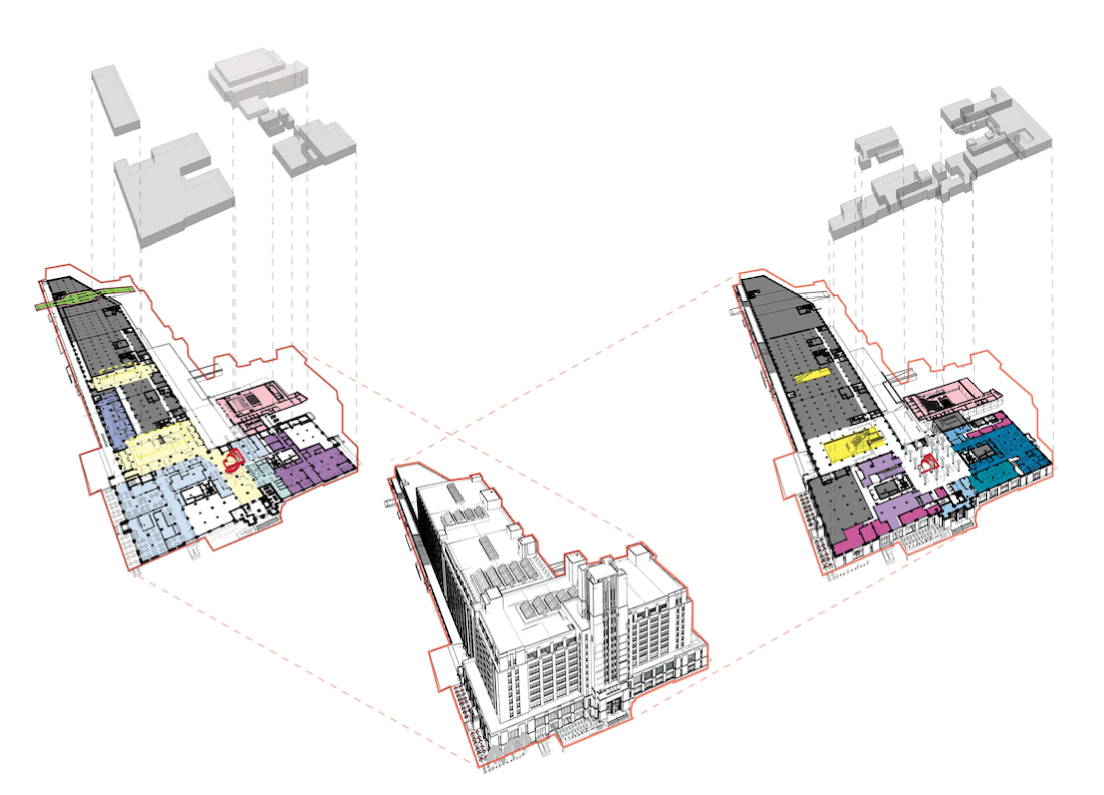Strategic Thinking Across Scales and Typologies
 For Crosstown Concourse, Spatial Affairs Bureau created the original ideas study for the 1.5 million sq. ft ruined Sears building, led the 50,000 sq. ft Crosstown Arts project in the historic 1927 building, developed the ground floor food hall strategy plan, designed the interior of the 450 seat auditorium and provided designs for Curb Market
For Crosstown Concourse, Spatial Affairs Bureau created the original ideas study for the 1.5 million sq. ft ruined Sears building, led the 50,000 sq. ft Crosstown Arts project in the historic 1927 building, developed the ground floor food hall strategy plan, designed the interior of the 450 seat auditorium and provided designs for Curb Market
A regular question asked of the office, is what type of architecture and design is the area of specialist interest. Whilst there is not an obvious reply for that question there are a series of responses.
All the projects are critically demanding in their own ways and the office is motivated by the provocations that come from the combination of client, site, guiding reason for the project and projected final use. There is usually a set of strategic questions for each project that may revolve around broadly similar themes across the studio, but because the inputting variables are so broad, no projects come out the same way. There are techniques, systems and feelings that reoccur within the work because each project is part of a larger trajectory of design evolution.
Spatial Affairs is committed to being adept across scales and project type and developing the appropriate teams of individuals to allow this approach to both function and flourish.
One of the smallest projects is an automated ticket machine for the Metropolitan Museum of Art, whilst the largest is a 2-mile long park bridge across two sides of a city in Richmond, VA. The private house projects range in scales from compound to micro-home, both as new build and remodels, and arts projects, multi-family homes and masterplans of varying scales in between. Meanwhile we use installations, exhibitions and creative writing as way of testing our own work outside typical project constraints.
Civic
Commercial
Cultural
Domestic
Educational
Some of our projects have spawned furniture or product design solutions and we particularly like the detailed thinking and different procurement processes this type of work requires. Click below for more information.
Peter Culley also believes that a successful and engaged practice also requires investigation in different types of media - not just buildings and landscape - and timescales that are independent of regular construction work. He believes it is important to include these as part of the growing personality of the office. Examples of more experimental projects are included in our overall project directory.